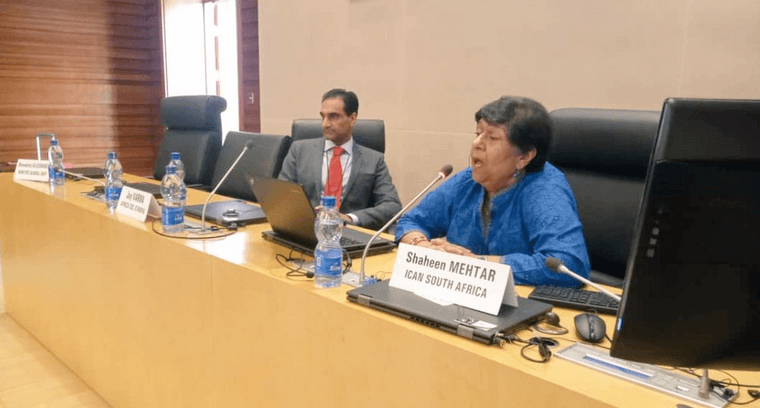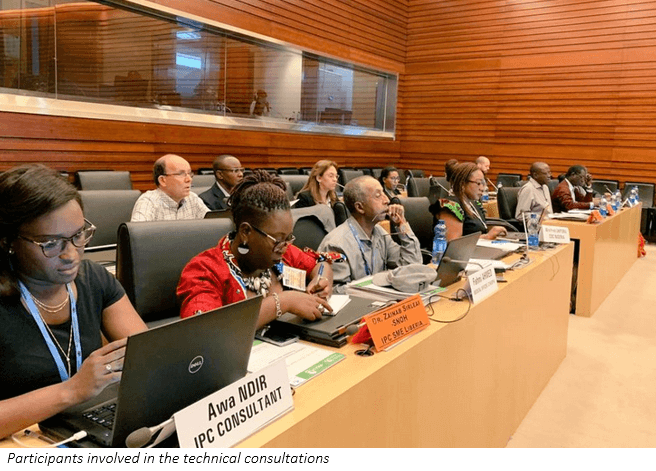The Africa Center for Disease Control (Africa CDC) together with the World Health Organization (WHO) held a technical consultation meeting on the development of an IPC legal and policy framework for African Union-member states. The consultations that were held on 10th –11th April 2019 took place at the African Union Commission (AUC) Headquarters in Addis Ababa, Ethiopia.

Professor Shaheen Mehtar of ICAN South Africa addresses the meeting
The meeting was aimed at establishing minimum standards and guidelines for Infection Prevention & Control (IPC) for healthcare facilities within the African Union member states. It attracted representatives from a number of countries that included; the Democratic Republic Congo, Egypt, Liberia, Malawi, Senegal, South Africa, Tunisia and Zimbabwe among others. The IPC stakeholders represented teaching hospitals, organizations such as the Infection Control African Network (ICAN) country offices, different WHO offices – Headquarters, African region (AFRO) and Eastern Mediterranean Region -EMRO, CDC USA, CDC Africa and EPN/ReAct Africa. All stakeholders were engaged in providing feedback and technical advice on the content of the proposed IPC minimum standards document in the form of plenary and panel sessions.
IPC has been an integral part of public health for decades. The International Health Regulation (IHR) is considered the overarching legislation governing public health in the 196 WHO-member states. However, preliminary findings from the desk literature/review study of the existing national laws, policies and/or regulations governing IPC in African states conducted by ICAN South Africa, showed that only 28 of the 55 (inclusive of Western Sahara) African states had both national laws and policies speaking directly to public health. None, distinctly percolated IPC as a separate entity, rather it was embedded within “public health” and/or “infectious disease control”.
It is for the above reason that it is pertinent to develop an IPC framework to guide the continent. Through the meeting, the participants were informed of preliminary findings from the ICAN literature study. There were also discussions around pre-determined questions drafted by Africa CDC. The questions guided an open-floor discussion to determine constituents of the resulting IPC legal framework, other than the already identified WHO IPC components.

Of importance to consider while putting laws and legal documents in place is that whereas laws and regulations are considered binding and lack of adherence to them punishable, policies are not. However, the AU Declarations, although they are not under the law & regulations umbrella, are considered binding. The WHO/WHA Resolutions on the other hand act as more of triggers for implementation of proposed policies and guidelines and are not necessarily binding.
Moving forward, a draft legal framework document that comprises of detailed IPC standards for national and health facility levels will be prepared and reviewed by participants ahead of a presentation to the AUC Ministers of Health, later on in July this year.

Preliminary results from a desk review of the legal and policy environment as pertains to the public health laws in AUC member states.
*Legend:
Green: Law [yes] + Policy [yes]
Red: Law [yes] + Policy [no]
Yellow: Law [no] + Policy [yes]
Blue: Law [yes] + Policy [no]
Brown: Western Sahara* (considered possibly 55th African State)
